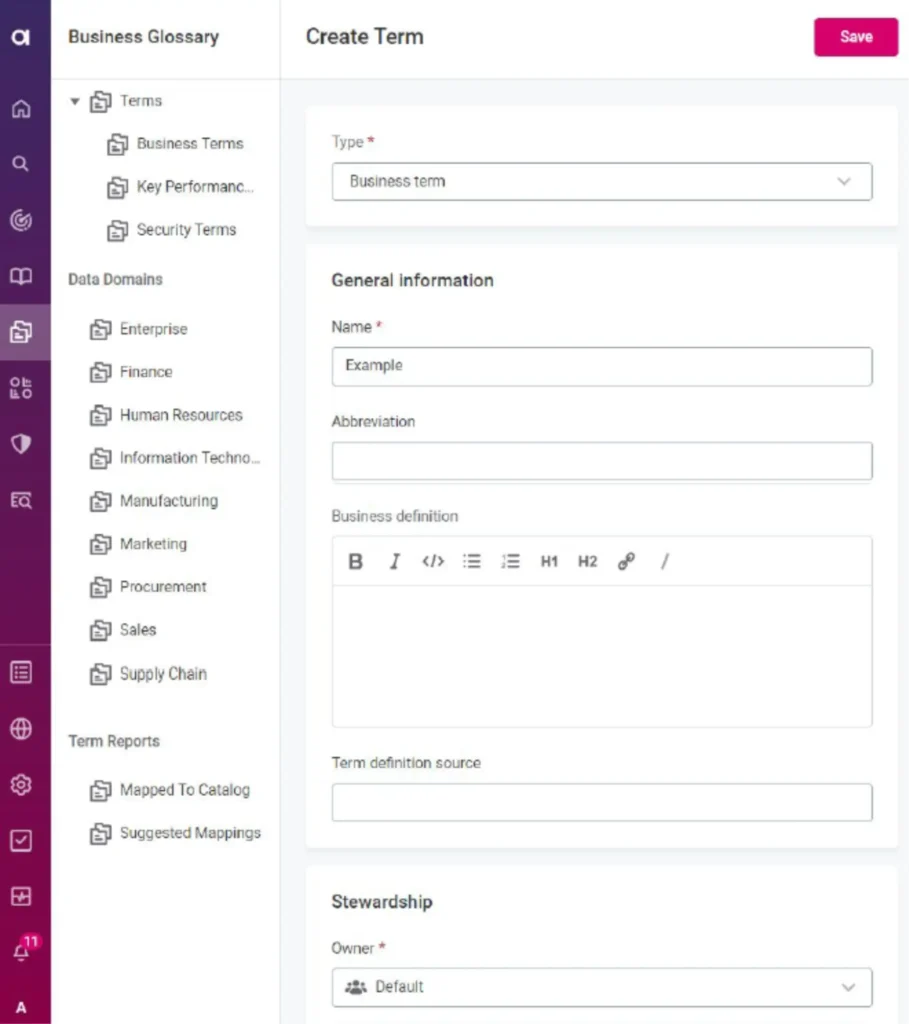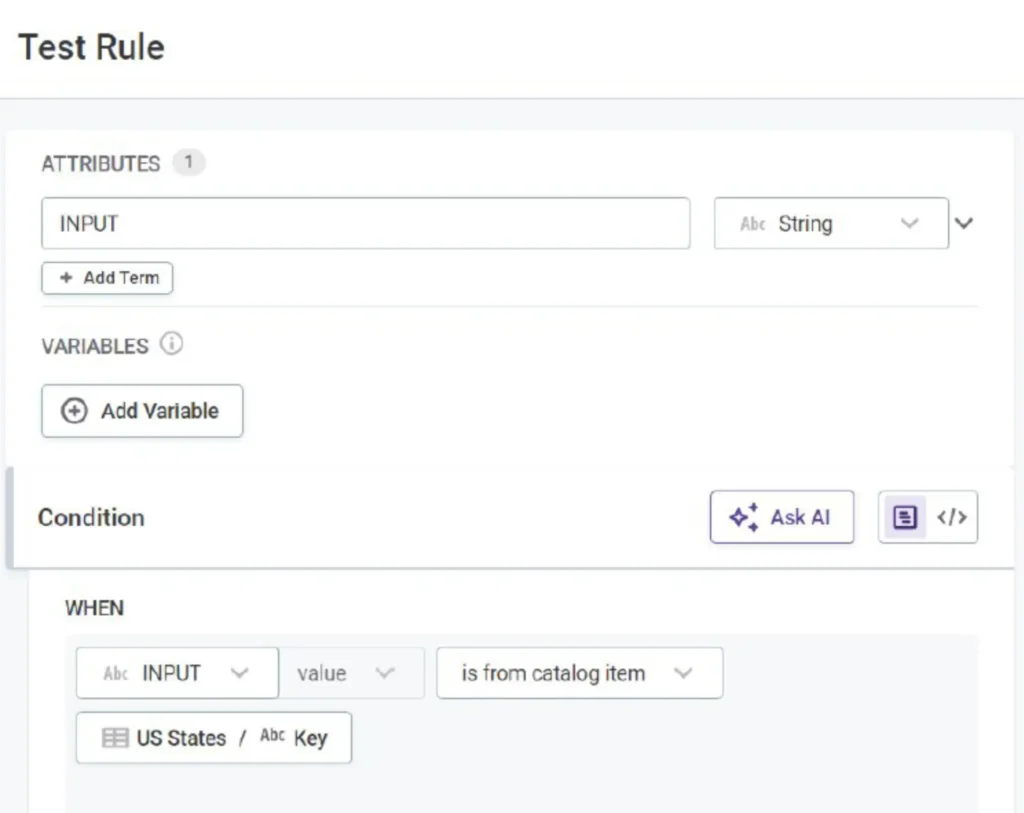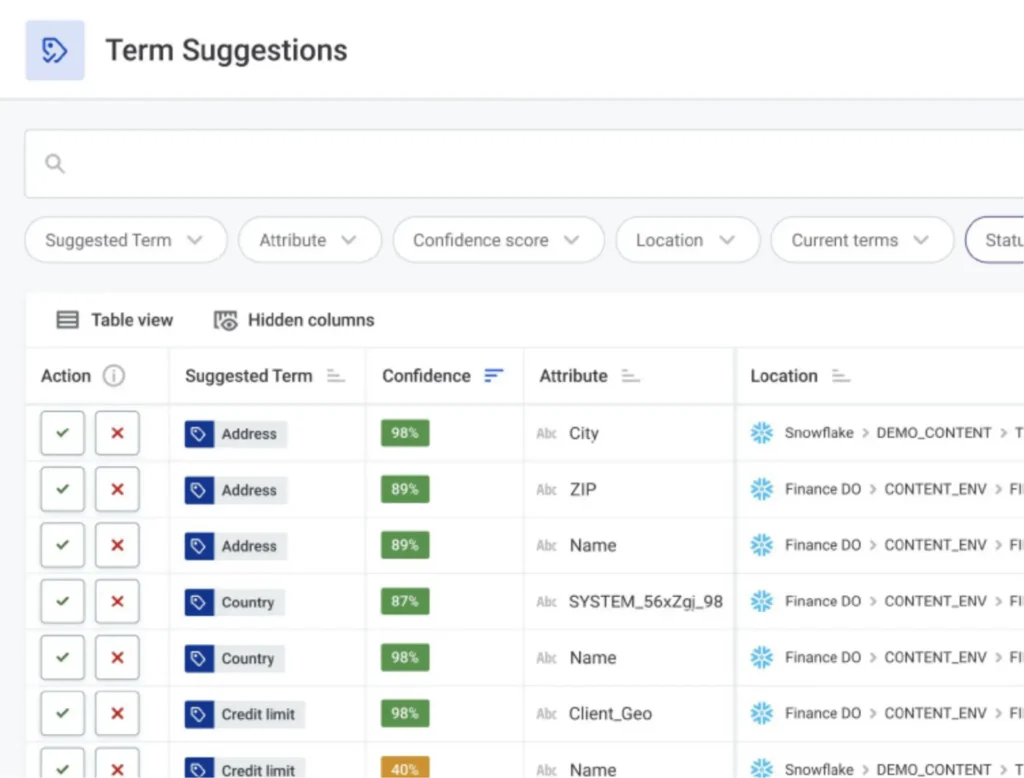Ataccama ONE Data Discovery
Update solution on November 14, 2025

Founded in 2007 in the Czech Republic, Ataccama initially focused on data quality before branching out into master data management (MDM) and data governance. It now has a broad suite of data management tools. The company has now grown to ten locations and over 500 staff, in June 2022 gaining a $150 million investment from Bain Capital for further expansion.
In the last year Ataccama achieved 52% new ARR growth year on year. It has 75 corporate partners including Snowflake, and 95% of new deals are subscription based. Customers include Aviva, T-Mobile, GSK and Heineken. Half of the company’s revenue is now from the USA, with just over a third from Europe and the rest in Asia-Pacific, the fastest growing region. Financial services is the largest vertical, but the company has plenty of pharma and life science customers, and a quite broad range customers in other verticals.
Ataccama ONE is a data management platform that specialises in developing and delivering trusted data. To this end, it offers a variety of capabilities, including data quality, data lineage, MDM, data governance, data integration, a data catalogue, and more. Among its many features, it provides a solution for discovering your data: an essential element in data observability, itself a core component in the product’s data trust functionality.
The platform is underpinned by a metadata knowledge graph and powered by ONE AI, the latter of which provides both machine learning and generative AI capabilities. While machine learning has been part of the platform for several years, generative AI is a comparatively recent addition. In particular, the product has recently introduced “AI Agent”, an AI-driven natural language user interface.
Ataccama ONE is licensed through a straightforward and transparent subscription model, priced by a combination of number of power users and data volume, with all platform capabilities immediately available. Optionally, it can be purchased through the Snowflake marketplace (and with Snowflake credits). It can be deployed in the cloud (as Ataccama Cloud) or on-premises.
Ataccama’s solution for data discovery relies on the creation of a business glossary (shown in Figure 1). This is populated with user-defined business terms, including their names, definitions, owner(s), relationship with other terms, and so on. The platform will then classify your data against these terms. Three different kinds of matching are available for this purpose: matching based directly on the data (data matching), matching based on its associated metadata (metadata matching), and term suggestion using AI. You may choose to deploy different types of matching for different use cases, or employ multiple kinds of matching at once to increase the rigour of your classification process.

Figure 1 – Ataccama ONE business glossary
Data matching examines your data values and compares them against user-defined matching rules, which specify both the type of input they operate on and the logic they use for comparison (see Figure 2). In this way, you can compare your data to RegEx patterns, to pre-existing lists of data, or to various logical operators, and classify your data accordingly. Inputs can be trimmed or their case changed automatically as part of this process. Matching rules come with a configurable certainty threshold for confirming matches, and you can test your matching rules within the platform via sample inputs created using generative AI.

Figure 2 – Creating a data matching rule in Attacama ONE
Metadata matching is similar to the above, but analyses the metadata surrounding your data instead of the data directly. This could include associated column names, descriptions, source systems, and so on. Similar to data matching, you need to create matching rules with defined inputs and conditions, with the difference being largely in the subject of those rules rather than their makeup. Notably, your metadata rules will adapt to user adjustments to metadata in order to remain accurate.
Finally, term suggestion uses similarity matching, driven by AI analysis of metadata and data samples, to suggest classifications for your data. This is accomplished by creating data “fingerprints”: compact vectors that capture the structure of your data values. Due to their compactness, they are easy to compare. The results are presented as suggestions – they are never automatically applied, and in fact term suggestion as a whole can be enabled or disabled for each individual business term – alongside a confidence score (as seen in Figure 3). Relevant data profiling results can be viewed alongside each suggestion, and you can approve or reject them individually. Moreover, since this capability is powered by AI, it will learn from your approvals and rejections in order to improve future results.

Figure 3 – Ataccama ONE term suggestion results
In addition to data discovery, Ataccama ONE also offers “data protection classification” as a means to protect your sensitive data. You may be more familiar with this as dynamic data masking, a technology that intercepts requests for protected data from unprivileged users and returns a masked value instead. This is applied on a term-by-term basis, allowing you to choose which terms should be protected.
Ataccama ONE is a well-rounded and rather complete data management solution that has been noted for its good performance and ease of implementation. Its emphasis on data trust is also appreciated, as is the addition of an AI-driven, natural language interface in AI Agent. Focusing in on data discovery, this is a foundational capability for many data management suites, and Ataccama is no exception: it is hard to manage your data if you do not have visibility into it, and that is exactly where data discovery and other observability capabilities come into play.
Ataccama ONE’s data discovery capability offers several different ways to sort your data into classifications, and thereby caters to various different use cases. For example, data matching will not be of much use if direct data access is not possible, but Ataccama offers metadata matching to compensate. Alternately, using multiple matching methods at once is a good way to increase the reliability of your results. AI term suggestion is particularly worth mentioning, as is the product’s built-in data masking/data protection classification functionality. Moreover, data discovery is well-integrated into the platform as a whole, and is easy to interact with via the platform’s business glossary.
Ataccama ONE is a compelling data management and data trust platform that offers a wide range of capabilities and functionality, which very much includes data discovery.
Related Company
Connect with Us
Ready to Get Started
Learn how Bloor Research can support your organization’s journey toward a smarter, more secure future."
Connect with us Join Our Community
